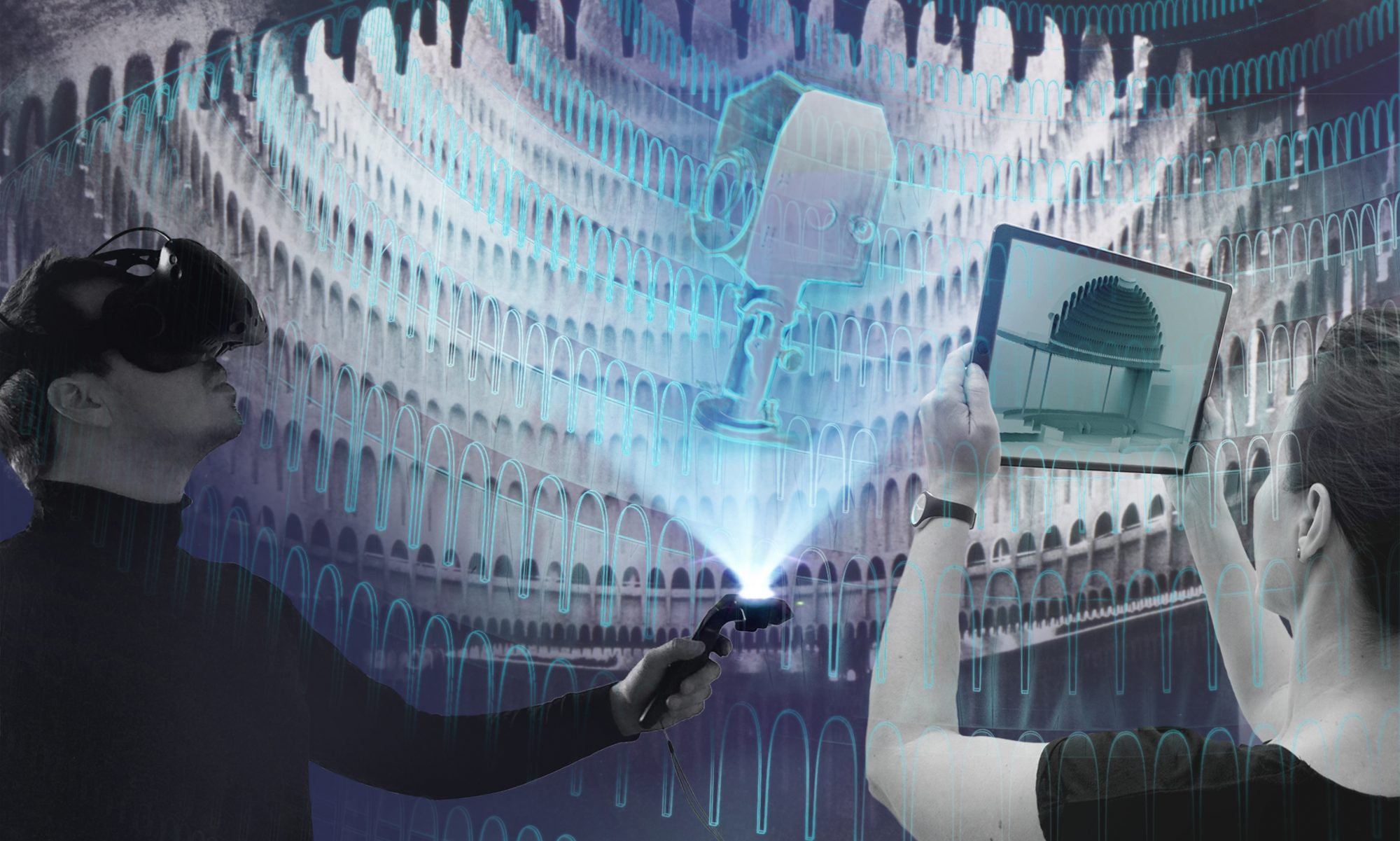On November 25, 2019, from 10 am to 5 pm, the workshop “Virtual and Augmented Reality – How can digital technologies open up new accesses to cultural heritage?” organized by digiS took place at the Zuse Institute Berlin (ZIB).
Augmented Reality (AR) and Virtual Reality (VR) are technologies that complement our existing communication spaces and promote new approaches to mediation. They offer new possibilities of immersive, interactive and playful experience, through which a broader – and especially younger – audience can be reached. Some museums and cultural institutions have already made experiences with these technologies, the first good applications are in use – many institutions are still afraid of contact or simply have no personnel or financial capacities. Will these new technologies help us to make collections and archives more sustainable? How can cultural institutions make meaningful use of these technologies? What are the characteristics of a good AR/VR application? What is possible in the new realities and what is not? What is necessary to produce such applications?
The subject of the workshop was a basic introduction to the subject area of virtual worlds and an overview of both technologies and how they work. The range of possible applications of AR and VR was shown by means of current best practice examples. Both technologies could be tried out in practice. First ideas for the application of AR and VR in the participants own institution or project work were outlined and discussed in short group work. In a joint discussion, opportunities and risks were reflected upon, potentials and limits were pointed out.
The workshop was supported by the Federal Government Commissioner for Culture and Media and the German Theatre Technical Society.
Lecturers:
Franziska Ritter is a scenographer and studied architecture at the TU Berlin (diploma) as well as film and photography at the University of North London. As co-founder and research assistant of the master’s degree course in Stage Design_Scenic Space at the TU Berlin, she has been teaching and realising how content is staged in space in practice-oriented teaching projects since 2008. She led the DFG project on the digitalization of the TU Berlin’s theatre construction collection. Franziska Ritter is a lecturer for exhibition design, scenography and theatre construction at various universities and is currently doing her doctorate at the Institute of Art Studies at the TU Berlin.
Pablo Dornhege researches, develops and designs real and virtual narrative spaces. During his studies of “Visual Communication” at the UdK Berlin he focused on exhibition design and digital/analogue space systems. Since then he has implemented a large number of international projects – exhibitions in museums, brand staging and the development of virtual reality experiences. He teaches at numerous international universities and has been researching the possibilities of virtual reality in scenographic and artistic contexts since 2016. Pablo Dornhege reports on this on his blog: www.virtualspatialsystems.com.
Franziska Ritter and Pablo Dornhege jointly manage the project “Im/material Theatre Spaces – Virtual and Augmented Reality solutions for Theatre” and have been researching the potential of new digital technologies in theatre for architecture, stage design and technology for the Deutsche Theatertechnische Gesellschaft since 2018.
The workshop is free of charge, the number of participants is limited to 15 persons, we can only admit one participant per institution.


